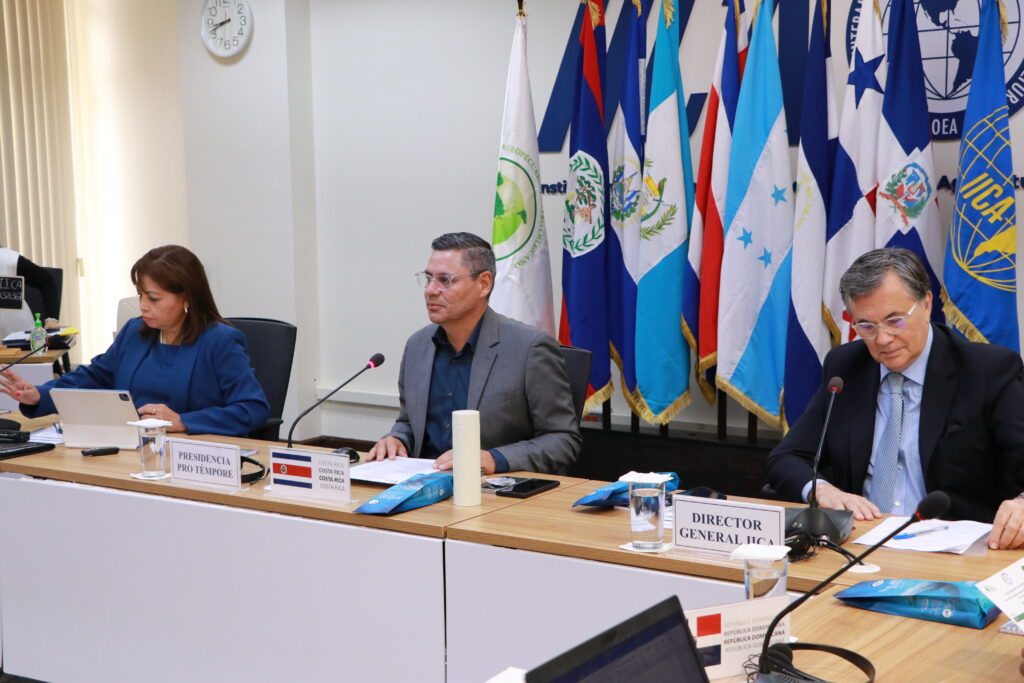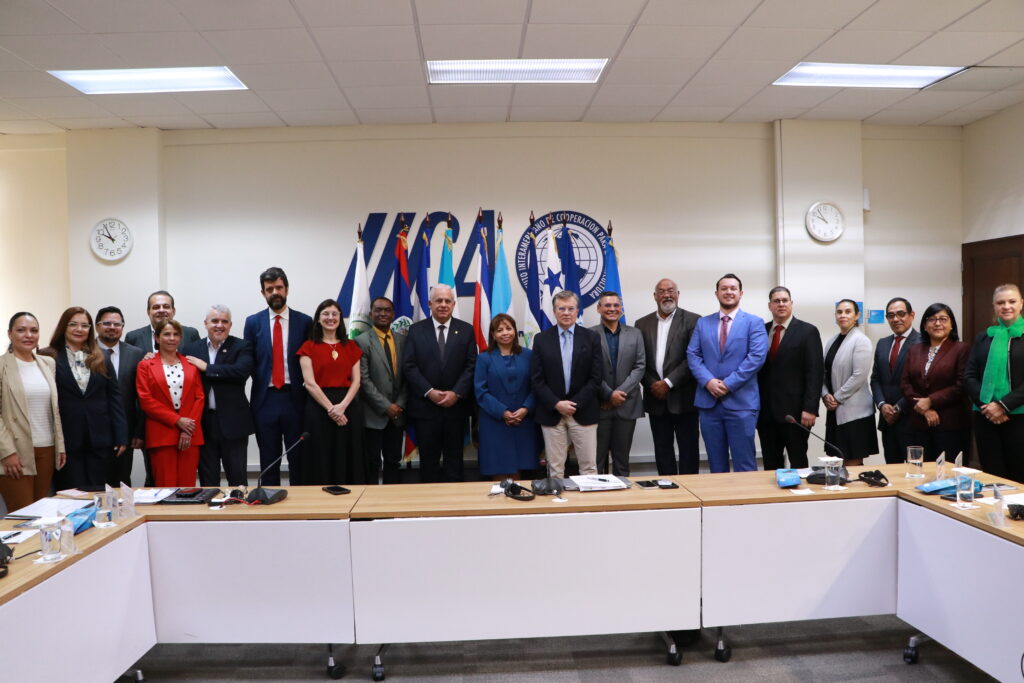
Lucrecia Rodríguez, Executive Secretary of the CAC; Fernando Vargas, Deputy Minister of Agriculture and Livestock of Costa Rica and President pro tempore of the CAC; and Manuel Otero, Director General of IICA.
San Jose, Costa Rica, 21 February 2025 (IICA) – Ministers and senior agricultural officials of the Central American Agricultural Council (CAC), meeting in San Jose, Costa Rica, agreed on the critical need for regional integration to strengthen and increase the sustainability of agricultural activity.
They were attending a meeting of the Ministers of Agriculture of the CAC—a body of the Central American Integration System (SICA)—taking place at the Headquarters of the Inter-American Institute for Cooperation on Agriculture (IICA).
The meeting was chaired by Fernando Vargas, Deputy Minister of Agriculture and Livestock of Costa Rica and President pro tempore of the CAC. Manuel Otero, Director General of IICA, was also in attendance.
Also present were Roberto José Linares, Minister of Agricultural Development of Panama; Laura Suazo, Secretary of Agriculture and Livestock of Honduras; Darío Vargas, Deputy Minister of Agricultural Extension Services and Training of the Ministry of Agriculture of the Dominican Republic; Victoriano Pascual, representative of the Ministry of Agriculture and Livestock of Belize; Jaime Figueroa, representative of the Ministry of Agriculture and Livestock of El Salvador; Jeovani Álvarez, representative of the Ministry of Agriculture of Nicaragua; and Lucrecia Rodríguez, Executive Secretary of SICA (CAC).
Importance of trade
The participants stressed that Central American countries were committed to improving conditions for producers and agreed on the importance of trade, technical cooperation and capacity building, as well as the implementation of projects and allocation of resources to tackle the challenges of the agriculture sector.
Deputy Minister Fernand Vargas noted that the ministerial meeting was an opportunity to obtain feedback on the actions of each country and to discuss the means of resolving the challenges facing agriculture in the Central American region.
Vargas indicated that, “We are committed to improving conditions for our producers. As such, each country is developing a series of initiatives and, by sharing them, this will enable us to find joint solutions and to take advantage of international cooperation within the framework of the CAC”.
Otero stressed that in the quest for a better future, integration is the answer.
“Three years ago, IICA established a Public Policy Observatory for Agrifood Systems (OPSAa), with a view to supporting the transformation of these systems. We want to place it at your disposal to address integration needs”, said Otero.
The IICA Director General ended his remarks by emphasizing that the greater the level of integration, the more equipped the region would be to address its problems and foster agricultural development.
On the other hand, Lucrecia Rodríguez, noted that regional integration is fundamental for the sustainable development of the Central America countries and that the CAC is committed to facilitate actions that enable farmers and their organizations to access local, regional and international markets.
Rodríguez maintained that, “Regional integration not only strengthens our economies, but also allows us to jointly tackle the challenges facing the agriculture sector. The CAC firmly believes that collaboration among countries is key to sustainable and equitable development”.

The ministers agreed on the importance of fostering synergies among countries to strengthen key areas, such as screwworm control, trade, the supply of basic grains, all of which are essential to enhance our capacities and contribute to guaranteeing the region’s food security.
The ministers agreed that fostering synergies among countries to strengthen areas, such as screwworm prevention and control, the supply of basic grains and capacity development for vulnerable groups in rural areas, including women and youth, is essential.
In the meeting, the ministers also spoke about joint negotiation mechanisms for the procurement of agricultural inputs and actions to reduce food and nutritional insecurity. They also discussed environmental and trade-related matters.
More information:
Institutional Communication Division.
comunicacion.institucional@iica.int











